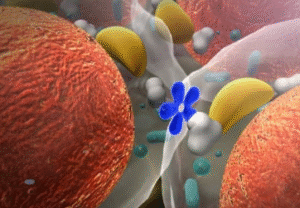Watery sperm is a common concern for many men and can raise questions about fertility and reproductive health. While semen consistency can vary due to several benign factors, persistently watery sperm may point to underlying medical or lifestyle-related issues that deserve attention.
In this article, we’ll explore the most common reasons behind watery sperm, how it may affect fertility, and when it’s time to seek professional help.
What Is Watery Sperm?
Sperm, also known as semen, is typically a thick, white, jelly-like fluid released during ejaculation. It consists of sperm cells and seminal fluid, produced by various glands including the prostate and seminal vesicles. When semen appears unusually thin, clear, or watery, it might indicate an imbalance in this composition — particularly a lower concentration of sperm or seminal proteins.
Occasional changes in semen consistency are usually harmless. However, consistent or sudden changes may signal a need for evaluation.
Common Causes of Watery Sperm
1. Low Sperm Count (Oligospermia)
One of the leading causes of watery semen is a low sperm concentration. With fewer sperm cells present, the semen becomes thinner and less viscous.
Contributing factors
- Hormonal imbalances (e.g. low testosterone, thyroid disorders)
- Genetic conditions (e.g. Klinefelter syndrome)
- Infections of the testes or reproductive tract
- Exposure to toxins or radiation
2. Frequent Ejaculation
Ejaculating multiple times within a short period can reduce sperm and fluid volume, leaving the semen temporarily watery. Your body may not have had enough time to replenish sperm stores or seminal fluid.
Solution: Try waiting 2–3 days between ejaculations to restore optimal semen quality.
3. Zinc Deficiency


Zinc is crucial for healthy sperm production, lack of zinc can result in poor semen volume and quality.
Sources of zinc
- Oysters
- Pumpkin seeds
- Red meat
- Eggs
- Whole grains
4. Hydration and Diet
Dehydration reduces overall fluid volume in the body, including seminal fluid. Focus on your diet because poor nutrition will impact hormone production and sperm health.
Tip: Drink enough water daily and consume a balanced diet rich in vitamins C, D, E, folate, and omega-3s.
5. Retrograde Ejaculation
This occurs when semen flows backward into the bladder instead of exiting through the penis. It can cause minimal or watery ejaculation.
Symptoms may include
- Little to no visible ejaculate
- Cloudy urine after orgasm
- Reduced fertility
Retrograde ejaculation can result from:
- Diabetes
- Nerve damage
- Prostate surgeries
- Certain medications (e.g., alpha-blockers)
6. Infections or Inflammation
Conditions like prostatitis, epididymitis, or sexually transmitted infections (STIs) can alter semen consistency. Inflammation in reproductive organs may reduce the volume and quality of seminal fluid.
7. Varicocele
A varicocele is a swelling of veins in the scrotum that can raise testicular temperature and impair sperm production, leading to watery semen and reduced fertility.
8. Hormonal Disorders


Hormones control sperm production and seminal fluid secretion. Imbalances in testosterone, LH, FSH, or thyroid hormones can disrupt this process.
Is Watery Sperm a Sign of Infertility?
Not always. Occasional watery semen doesn’t necessarily mean you’re infertile, if persists, it may signal issues like:
- Low sperm count
- Poor sperm motility or morphology
- Reduced seminal fluid from glands
If you’re trying to conceive, watery sperm could lower the chances of successful fertilization. A semen analysis is the best way to assess fertility potential.
When to See a Doctor?


- Watery semen is consistent or has appeared suddenly
- You experience pain during ejaculation or urination
- There’s blood or discoloration in your semen
- You’ve been trying to conceive for over 12 months and fails
- You have a history of infections, testicular surgery, or chronic illness
Diagnosis: What to Expect
Your doctor may recommend a semen analysis, which evaluates:
- Sperm count: Number of sperm per milliliter
- Motility: How well sperm move
- Morphology: Shape and structure of sperm
- Volume and viscosity: Total semen amount and thickness
- Liquefaction time: How quickly semen turns from gel to liquid
Further tests may include:
- Blood tests for hormone levels
- Ultrasound to check blockages or varicocele
- Urinalysis to detect retrograde ejaculation or infection
Treatment Options
Treatment depends on the underlying cause. Common strategies include:
Lifestyle Changes
- Improve hydration and nutrition
- Reduce alcohol intake
- Quit smoking or drug use
- Limit heat exposure (e.g., saunas, tight underwear)
- Manage stress through exercise and sleep
Medical Treatment
- Antibiotics for infections
- Hormone therapy for imbalances
- Zinc or multivitamin supplements
Surgical Options
- Varicocelectomy to treat varicocele
- Surgical correction for blockages
- Assisted Reproductive Technologies (ART):
Final Thoughts
If you’ve asked, “Why is my sperm watery?” — you’re not alone. While the consistency of semen can vary for many reasons, persistent watery sperm may signal a need for further evaluation. Whether the cause is minor or more serious, most issues are treatable with early detection and proper care.
If you’re concerned or planning to start a family, don’t wait to speak with a healthcare provider. A simple semen analysis can provide clarity and open the door to effective treatment or fertility support.




